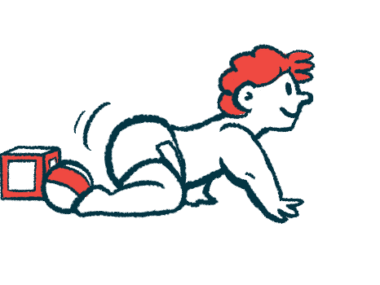Caring for Your Heart When You Have Pompe Disease
Written by |

Pompe disease is a rare genetic disease in which a type of complex sugar molecule called glycogen builds up within cells and affects their proper function, leading to problems in many organs, especially the heart.
All Pompe disease patients have heart-related symptoms, but the risk of heart failure is highest in the classic infantile-onset type. Children with non-classic infantile-onset Pompe disease show heart enlargement (cardiomegaly) but are less prone to heart failure. The risk of heart failure is lowest in patients with the late-onset form of the disease, but these patients may also experience irregular heartbeats and cardiomegaly.
Here are a few tips to care for your heart if you have been diagnosed with Pompe disease.
Start ERT immediately after diagnosis
Enzyme replacement therapy is the first-line treatment for Pompe disease and must be started as soon as a diagnosis of Pompe disease is confirmed. Research has shown that ERT is able to decrease the size of the heart to normal in case of cardiomegaly, and helps maintain normal heart function. Hence, start ERT as soon as possible after diagnosis.
Monitor your heart health
Regular monitoring of your heart health can identify potential problems earlier and allow enough time for therapeutic intervention. Plan regular cardiac checkups with your doctor.
Also, recognize signs of heart problems such as chest pain, shortness of breath, sweating in cold temperatures, and nausea. Do not delay contacting your doctor if you experience any of these symptoms.
Consider high-protein, low-fat, low-salt diet
Pompe disease patients require higher protein intake than the general population (around 1.2 to 1.4 grams per kg per day) in order to develop good muscle strength.
Unhealthy fats, also known as trans fats, should be avoided. Trans fats can increase the levels of a type of cholesterol known as “bad cholesterol” or low-density lipoprotein, which can clog arteries and thicken the walls of the heart.
Cut down on salt intake to control blood pressure, and make sure you are well-hydrated.
Talk to a dietitian, who will be able to recommend a diet personalized for you.
Exercise regularly
Moderate exercise helps lower stress levels and improves heart health. If your work requires sitting for long periods, be sure to take intermittent breaks and go for short walks. Consult a physiotherapist, who will be able to suggest a personalized exercise regimen. Take care not to overdo any activity that might worsen your symptoms.
Exercise can also help you to maintain a healthy weight, which means having a body-mass index between 18.5 and 24.9 kg per square meter and a waist circumference that’s less than 40 inches (for men) or 35 inches (for women).
Sleep well
Proper sleep is essential for good cardiac health. For adults, ideal sleep duration is between seven and eight hours for most nights. If you consistently have difficulty getting good quality sleep, consider taking a sleep test (polysomnography).
Avoid alcohol and tobacco
Alcohol and tobacco have adverse effects on heart health, especially when consumed in excess. Second-hand smoke can also be dangerous to non-smokers. Therefore, abstain from alcohol and smoking as much as possible. If you have trouble quitting, consult your doctor for guidance.
Last updated: Nov. 7, 2019
***
Pompe Disease News is strictly a news and information website about the disease. It does not provide medical advice, diagnosis, or treatment. This content is not intended to be a substitute for professional medical advice, diagnosis, or treatment. Always seek the advice of your physician or other qualified health provider with any questions you may have regarding a medical condition. Never disregard professional medical advice or delay in seeking it because of something you have read on this website





